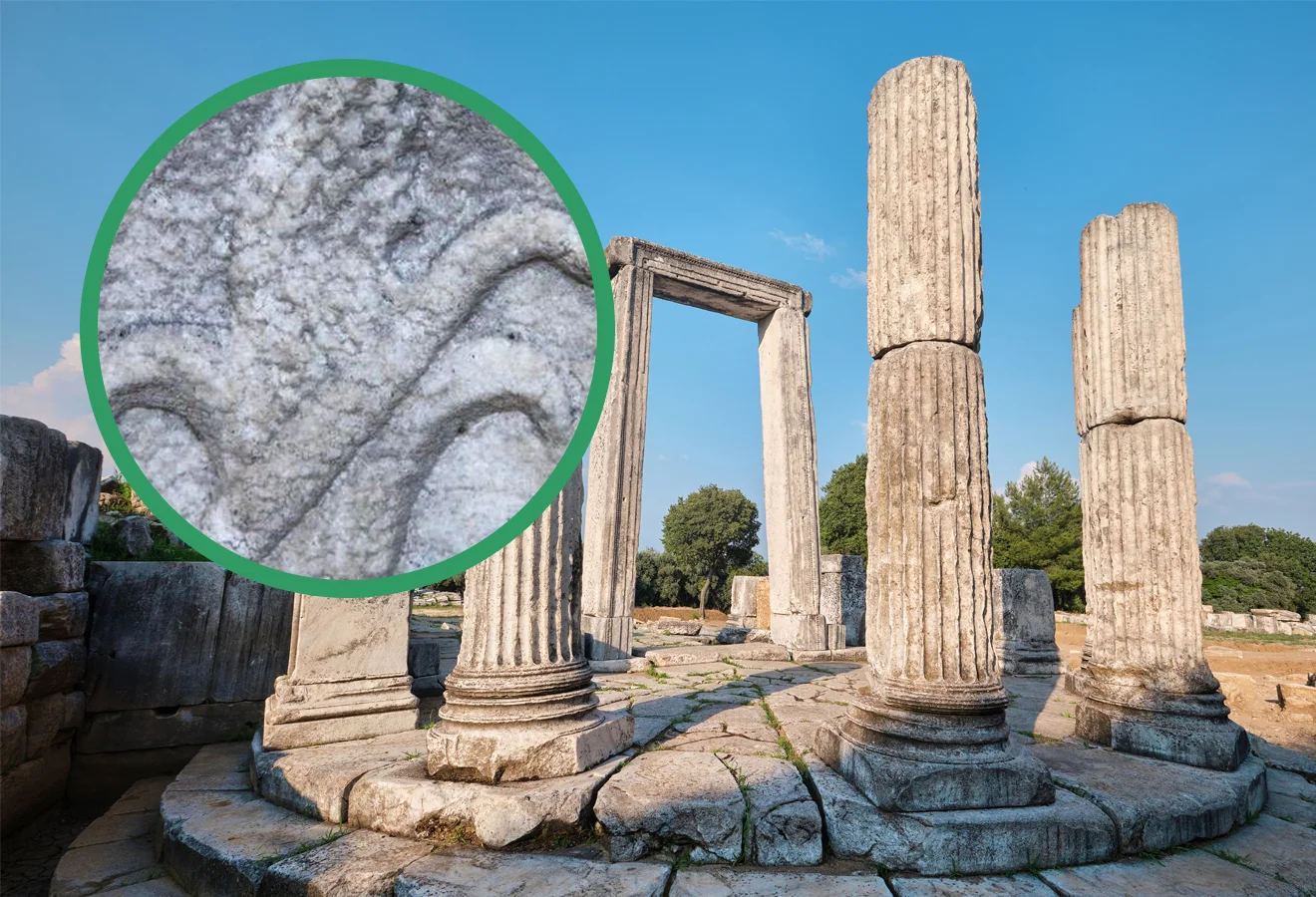Archaeologists excavating a 3,000-year-old temple complex in Turkey’s southwestern Mugla province have uncovered a depiction of the goddess Hecate.
The discovery was made at Lagina, an Ancient Greek town and religious centre of the polis of Stratonicea. Inhabitants of Stratonicea would make a seasonal pilgrimage to Lagina to worship in the main temple dedicated to Hecate.
Part of the rituals conducted included a “Key-Carrying” ceremony in which a choir of young girls would walk from Lagina to Stratonicea to declare their devotion to the city. On their return, the gates would be opened by the girl carrying the key (the kleidophoros), and the religious festivities would begin.
Hecate was one of several deities worshipped in ancient Athens as a protector of the oikos (household), alongside Zeus, Hestia, Hermes, and Apollo.
She is generally portrayed holding a pair of torches, a key, snakes, or accompanied by dogs. In later depictions she is three-formed or triple-bodied to represent a different aspect: the sky, the earth, and the underworld.
Recent excavations at Lagina are part of the “Heritage for the Future Project”, which is focusing investigations on the ceremonial gate and entrance structure to the sanctuary.
According to Prof. Dr. Bilal Söğüt, “We discovered a Hecate torch motif on a column and Corinthian capitals from the Hellenistic and Roman periods. For the first time, a figurative Corinthian column capital from the 2nd century AD was unearthed.”
Söğüt explained that the new discoveries are revealing new insights into the Hecate cult practices and how pilgrims accessed the sanctuary. Further investigations hope to uncover traces of the sacred road travelled by worshipers, which will enhance future visitor experiences to the site as a tourist destination.
Header Image Credit : AA
Sources : AA





